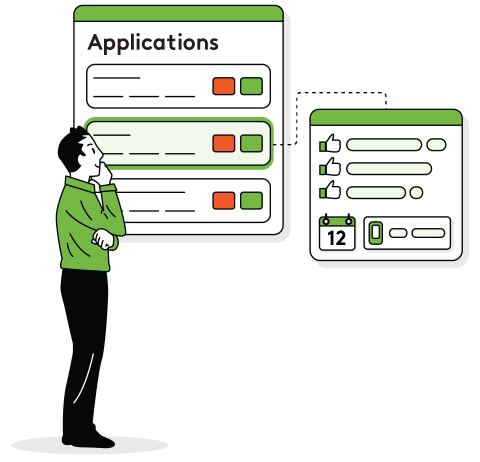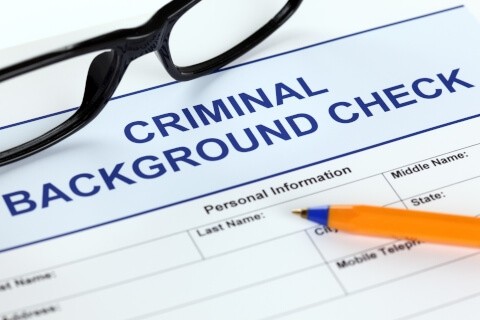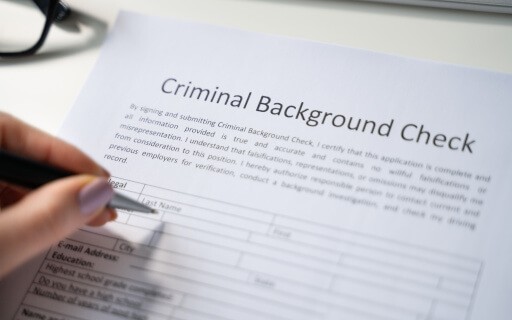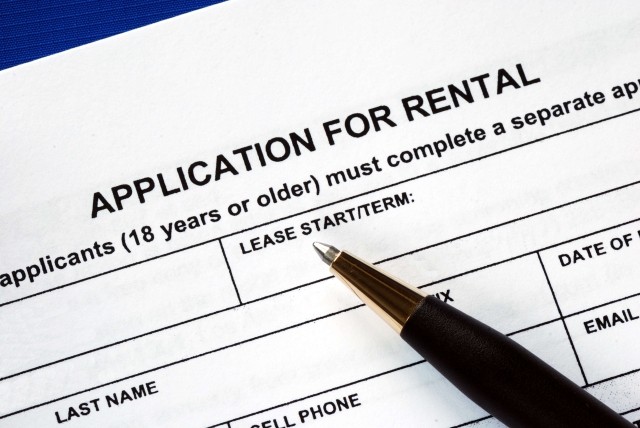You’re ready to market your first rental property and become a landlord. Congratulations! But what do you say when interested applicants start asking you questions? Will you have the answers?
You might be new to the landlord game, but you don’t want to appear that way to your possible tenants. Prepared landlords are less likely to be taken advantage of and can set the tone of professionalism from the start. Be prepared to answer common tenant questions, and you’ll sound like the pro you soon will be.
1. How much is the application fee?
Although you can rent your place to the first person who answers your ad, you really don’t want to do that. You, at the very least, need potential renters to fill out an application. You should ask the following:
- Name
- Phone number
- Email address
- Birth date
- Income
- Employer information
- Current residence
- References
- Emergency contact
- Any pets?
- Any convictions?
- Any evictions?
- Any bankruptcies?
- Do you smoke?
You can make up your own application and charge a nominal fee for your time. But if you do it that way, the information the applicants submit isn’t verified. The better approach is to use a screening service.
2. Will you run a credit and background check?
I don’t usually say “always” or “never,” but in this case, I can say that I always run either a credit check or a background check, and I generally run both. What I look for in the credit check is the credit score, but I don’t look only at that.
For example, if the score is low because of something that happened years ago, the credit history has been good ever since, and everything else checks out such as income and employment, I might overlook a low score.
Some applicants might ask whether they can provide you with a credit or background check. I decline those offers, preferring to run my own credit and background checks.
If you need help screening tenants, luckily Apartments.com makes it easy to screen tenants, get the information you need, and find a qualified renter fast. Unlike our competitors, who use various third-party resources to collect information, we partner with TransUnion to provide you with screening reports for evictions, credit, and criminal history. Another feature you’ll find only on Apartments.com is support for co-signers, guarantors, and co-applicants. If you need more information to make a decision, you can request supporting documents from potential tenants directly on our platform. Get all the information you need to find the right tenant quickly and easily.
3. Are there extra monthly fees?
Most landlords charge first month’s rent and security deposit (and sometimes last month’s rent) before a tenant moves in. But you might want to charge additional fees.
- If you allow pets, you might charge an extra $25 to $50 per month to pet owners.
- If you offer a landscaping service, figure out what it costs you, and pass that cost to the tenant.
- If you will pay for utilities, add those fees to the monthly rent.
4. How are maintenance requests handled?
Let your tenants know that they should notify you (or your property manager) the moment they notice a problem. Typically, the sooner problems are fixed, the better. Here’s what I have in my lease:
Tenant agrees to immediately notify Landlord of any defects or dangerous conditions in and about the promises of which they become aware.
Let your tenants know that if they don’t notify you about a small problem that becomes a big problem from neglect, they could be held liable. For example, let’s say your tenant notices a leak somewhere, doesn’t tell you, and does nothing about it. And let’s say that leak causes major water damage. Your tenant could be on the hook for not giving you the opportunity to fix the problem before damage occurred.
Note: To avoid being called to fix simple, minor problems, like a burned out light bulb, include something like this in your lease: Tenant is responsible for minor repairs $50 and under.
5. Can I paint my room?
If you flat out deny a request to paint a room, you might start out on the wrong foot with your new tenant. It’s better to tell them, “It depends.” Then you can discuss the options:
- If they want to paint, they need to get your permission first.
- You can veto a color. You would do so if the color will be a difficult one to cover up later.
- The tenant must do a professional job, hire and pay for a professional to do the job, or pay at move out time when you need to paint it back.
6. Am I allowed to sublet?
Some tenants need to be away for an extended time and like to sublet while they’re gone. It’s up to you whether you will allow that. I don’t allow subletting in my rental units unless I approve the person by first running a credit and background check. Whatever you decide, it’s best to put your policy in your lease.
7. Is there an early termination fee?
When you get a tenant to sign a 12-month lease, for example, the expectation is for them to stay (and pay rent) the entire 12 months. But sometimes tenants need or want to leave early. Unless your tenant is in the military and is called for military duty or the place becomes uninhabitable, your tenant is responsible for the rent for the entire lease term, or until you find someone to replace that tenant.
Another option that some landlords choose is an early termination fee, an amount that allows tenants to break the lease. Charging two months’ of rent is a common early termination fee amount. If you choose to do that and you don’t find another tenant after two months, you lose out. But if you find another tenant right away, you could come out ahead. Whatever you choose, you need a policy in place before you rent. If you have an early termination fee, it needs to be in your lease.
8. Can I swap out the light fixture?
Or the ceiling fan, or the locks?
These policies, like whether you’ll let a tenant paint, are up to you. If you allow your tenant to change the light fixture or the ceiling fan, make it clear in writing what happens to those items when the tenant moves out. If your tenant wants to take them, you should require they replace the original fixtures. If they no longer have the original fixtures, they’ll need to leave the replacement fixtures, or you can take the money the original fixtures were worth from the security deposit.
Regarding changing the locks, it’s a good idea for you to change locks between tenants. If your tenant wants to change the locks, they need to get approval from you and, in most cases, give you a key. Look up your state law on this. In most states, landlords can (and should) insist on having a key.
9. What’s the grace period for paying rent?
Many tenants expect to have some sort of grace period, a time in which rent is late but you haven’t started charging late fees. Grace periods help tenants in case they don’t pay rent on or before the due date or in case you don’t receive rent on or before the day it’s due.
Just because some tenants expect you to provide a grace period doesn’t mean you must do so (unless your state or jurisdiction requires a grace period). But if you want to provide a grace period, it’s usual to give a grace period of three to five days after the due date.
10. What are the average total monthly utilities?
If you have ever lived in the place you are now renting out, you’ll have the answer to how much utilities generally cost. If not, you can call the utility companies in your area to possibly get an estimate. Or you could tell your tenants to figure around $200 per month for all utilities: electricity, gas, water, trash, and internet.











